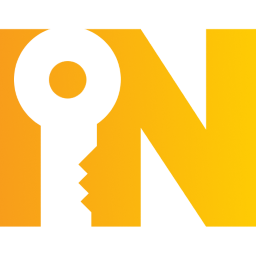The need for information technology (IT) professionals is growing in the current digital era. However, a common misconception among aspirants is that the only way to enter this dynamic field is a Computer Science degree. In reality, the IT sector is broad and varied, providing a wealth of options for people without a formal experience in computer science. If you’re passionate about technology and eager to kickstart your career in IT, Below are the following tips you can follow.

Tips to start career in IT without Computer Science
- Identify Your Area of Interest
The IT sector includes a wide range of jobs, such as network administration, data analysis, software development, and cybersecurity. Start by investigating several IT-related fields to determine your areas of interest and strength. Think about the areas of technology that most interest you and the areas in which you believe in yourself contributing greatly.
- Acquire Relevant Skills and Knowledge
Although a degree in computer science can offer a strong basis, there are other ways to acquire the skills required for an IT profession. Alternative learning options are abundant and include self-study materials, coding bootcamps, and online classes. You may learn relevant skills at your own speed by enrolling in inexpensive courses in a variety of IT disciplines from websites such as Coursera, Udemy, etc. Moreover you can learn through Youtube which is the best and most informative source of technology. You can propel learning and Innovation from AI, the most successful technology, like you can take help of Yatter AI which is your personal AI on whatsapp and telegram.
- Build a strong portfolio
Practical experience frequently counts for more in the IT field than academic qualifications. As you gain new abilities, concentrate on creating a portfolio that highlights your endeavors and successes. Having real-life instances of your work, whether it be from creating a website, creating a mobile app, or working on open-source projects, will significantly improve your reputation.
- Pursue certifications
Obtaining a certification is an excellent approach to demonstrate your expertise in particular IT fields. A formal degree may not be replaced by a certification, but it does show that you are dedicated to lifelong learning and professional growth. Seek for credible certification courses in your field of interest, such as Cisco CCNA, CompTIA A+, or Certified Ethical Hacker (CEH), and think about completing one or more of them to strengthen your resume.
- Practical Experience through Internships and Freelancing
Freelance work and internships can offer priceless practical IT industry experience. The exposure to the sector and the practical skills you acquire may be quite helpful for your professional advancement, even if the employment is unpaid or low-paying. Seek out opportunities to intern at tech companies, volunteer for nonprofit organizations, or offer your services as a freelance IT consultant to start building real-world experience.
- Stay updated in Industry Trends
The IT landscape is constantly evolving, with new technologies and trends emerging at a rapid pace. To remain relevant and competitive, it’s essential to stay updated on industry developments and trends. Follow tech blogs, subscribe to industry newsletters, and participate in online forums to stay informed about the latest advancements in IT and adapt your skills accordingly.
- Showcase Your Soft Skills
Employers in the IT sector seek soft skills like communication, problem-solving, and teamwork in addition to technical ability. Make sure to emphasize these abilities in both your job interview and CV. You may differentiate yourself from the competition and become an invaluable member of any IT team by showcasing your great interpersonal skills and desire to work with others.
- Network and mentorship
In all sectors, including IT, networking is essential. To network with experts in the sector, go to conferences, tech meetups, and networking events. Developing connections with seasoned people may lead to insightful conversations, mentorship possibilities, and even career recommendations. Never undervalue the ability of networking to create new possibilities.
IT sectors without need of Computer science background
Following are the options In IT sectors where computer science degree is not necessarily are listed below:-
1. Digital marketing

Professionals in digital marketing use internet platforms and technology to advertise goods and services. Although having experience in marketing is helpful, having a solid understanding of technologies such as Google Analytics, SEO, and social media management platforms is sometimes more important than having a degree in computer science. For learning the digital marketing strategies you can do certificate courses of 3-4 months in Digital marketing and excel your career in IT sector.
2. Graphic Design and Multimedia

Multimedia experts and graphic designers provide visual material for websites, ads, films, and other media. It is not always necessary to have a computer science degree to have technical abilities in design tools like Adobe Creative Suite. You can use low code tools to do graphic designing.
3. Web Development

Computer science education can be useful in web development, however many successful web developers are self-taught or have learnt through online resources and coding bootcamps. Being proficient in HTML, CSS, and JavaScript is frequently more important than having a formal background in computer science. In addition to that you can use No-code tools for web development like WordPress, Flutterflow, Figma, Canva for designing to ease the web development experience.
4. User Experience (UX) Design
The primary goal of UX designers is to create software, apps, and websites with intuitive and user-friendly interfaces. Although a CS degree is not necessary to obtain an overview of human-computer interaction concepts, it can be obtained through specific courses and real-world experience. UI/UX does not need any specific degree or coding you can do it by learning from youtube or many other free sources which are available online.
5. Technical Writing
Technical writers create documentation, manuals, and instructional guides for software, hardware, and IT systems. Strong writing skills, attention to detail, and the ability to communicate complex technical concepts in simple terms are more important than a computer science background.
6. Project Management
IT project managers are responsible for supervising the organization’s IT project planning, execution, and implementation. A CS degree is usually not as important as project management skills, organizational knowledge, and leadership talents, etc.
7. Cybersecurity

Although computer science and cybersecurity frequently overlap, some positions in the field—such as cybersecurity analysts and compliance specialists—may not require a formal CS background. Specialized certifications and hands-on experience in cybersecurity practices and protocols are often more valuable.
8. Data Analysis

To help with business decision-making, data analysts take insights out of big databases. Even while it’s beneficial to know programming languages like Python or R, many data analysts have backgrounds in business, mathematics, statistics, economics, and statistics rather than computer science.
9. Technical Support and Help Desk
Technical support experts help consumers fix hardware and software problems. Even though technical expertise is necessary, many support positions place more value on problem-solving techniques, communication skills, and past customer service experience than a CS degree.
10. Sales and Account Management
In the IT sector, sales representatives and account managers prioritize closing deals, maintaining clientele, and hitting financial goals. A CS degree is not always necessary; instead, sales skills, relationship-building talents, and industry expertise are frequently more valuable than comprehending the technology that they are selling. You can use Fastax for accounting and inventory mangement.
Conclusion
In conclusion, a computer science degree is not the sole option to enter the IT business. Without a background in computer science, you may still start a fulfilling career in IT if you have determination, innovation, and a dedication to lifelong learning. Accept the ride, take advantage of learning opportunities, and don’t be scared of creating your own route in this dynamic and fast-paced industry.
In today’s tech-driven world, a computer science degree is no longer the sole pathway to success in the IT field. With the abundance of alternative courses, certifications, and self-learning resources available, aspiring professionals can carve out rewarding careers in technology regardless of their educational background. Many of the jobs available in today’s IT industry don’t require a background in computer science (CS). There are many different options, ranging from data analysis and cybersecurity to UX design and digital marketing. Without a formal CS degree, people can succeed in IT employment with the correct abilities and drive.







